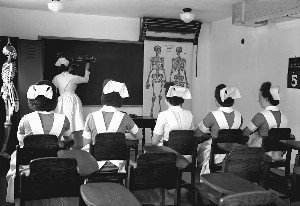Estella Maria Bortoncello Munhoz, Douglas Ceccagno
A recriação do mito de origem no conto brasileiro “Por um pé de feijão”
Introduction
A recriação do mito de origem no conto brasileiro “por um pé de feijão”. Analisa o conto “Por um pé de feijão” de Antônio Torres, explorando a recriação de mitos de origem e cosmogônicos. Conecta literatura e mitologia, revelando o ciclo de destruição e recomeço.
Abstract
Este trabalho analisa o conto brasileiro “Por um pé de feijão”, escrito por Antônio Torres, e sua relação com o mito cosmogônico e os mitos de origem. Desse modo, são feitas aproximações entre literatura e mitologia para demonstrar de que modo o texto faz alusão aos mitos de origem com base nos acontecimentos narrados. Inicialmente, foi realizada uma pesquisa bibliográfica acerca do tema e, em seguida, uma análise voltada aos aspectos simbólicos do conto que estão relacionados com esse viés mítico. O aporte teórico da pesquisa inclui os estudos de mitólogos e estudiosos do imaginário, como Bulfinch, Campbell, Chevalier e Gheerbrant, Durand, Eliade e outros autores. A análise demonstra que o conto contém elementos que rememoram um tempo circular, de modo que os acontecimentos, voltados ao ano novo, à destruição e ao recomeço, atualizam o mito cosmogônico.
Review
The paper, titled "A recriação do mito de origem no conto brasileiro “Por um pé de feijão”," proposes a compelling analysis of Antônio Torres’s short story within the context of cosmogonic and origin myths. The abstract clearly outlines the study’s objective: to demonstrate the interrelationship between literature and mythology by exploring how the chosen Brazilian narrative alludes to foundational myths through its plot. This interdisciplinary approach promises to offer fresh insights into a specific work of Brazilian literature, positioning it within a broader, universal mythical framework. The selection of a specific Brazilian *conto* provides a valuable case study for examining the enduring presence and recreation of ancient narratives in contemporary literary forms. Methodologically, the study adopts a well-structured approach, combining an initial bibliographic review on the theme with a subsequent focused analysis of the symbolic aspects of the short story related to its mythical underpinnings. The strength of this research is significantly bolstered by its comprehensive theoretical framework, drawing upon the esteemed contributions of mythologists and scholars of the imaginary such as Bulfinch, Campbell, Chevalier and Gheerbrant, Durand, and Eliade. This scholarly foundation ensures a rigorous and well-informed interpretation. The analysis, as summarized, reveals that the *conto*'s elements indeed evoke a sense of circular time, where events centered around the New Year, destruction, and subsequent recommencement actively actualize the cosmogonic myth, thereby fulfilling the paper's stated aim. Overall, this paper presents a well-conceived and theoretically grounded exploration of a significant theme. Its contribution lies in illuminating how a specific piece of Brazilian literature engages with universal mythical structures, enriching our understanding of both the text and the enduring power of myth in narrative. The abstract suggests a robust argument and clear findings that will likely resonate with scholars of literature, mythology, and cultural studies. Provided the full manuscript delivers on the promise of its abstract, particularly in detailing the nuanced "recreation" of the myth, it represents a valuable addition to the scholarly discourse. I recommend this work for publication, anticipating that it will stimulate further discussion on the intertwining of local narratives with archetypal patterns.
Full Text
You need to be logged in to view the full text and Download file of this article - A recriação do mito de origem no conto brasileiro “Por um pé de feijão” from O Eixo e a Roda: Revista de Literatura Brasileira .
Login to View Full Text And DownloadComments
You need to be logged in to post a comment.
Top Blogs by Rating
The Geological Secret in Your...
By Sciaria
The Unseen Pillars: How Crypto...
By Sciaria
Phantom Power: Unmasking Your...
By Sciaria
Favorite Blog
The Invisible Load: Unveiling...
By Sciaria
Identical Twins Aren't Identic...
By Sciaria
The Invisible Architects: Are...
By Sciaria
Related Research
A insuficiência do eu lírico
La società di carità materna. politiche per “povere donne partorienti maritate” fra ancièn regime e periodo napoleonico
Language and text structures
Share
Notice Board
- LEGAL POLICY ON WASTE MANAGEMENT IN TARAJUSARI VILLAGE, BANDUNG REGENCY
- GEOMORPHOLOGICAL AND GEOARCHAEOLOGICAL ELEMENTS AS GEOINDICATORS FOR THE EVALUATION OF RECENT VERTICAL MOTIONS ALONG THE CAMPANIA COASTLAND
- ANALISIS PERCEPATAN WAKTU DENGAN METODE FAST TRACK PEKERJAAN PEMBANGUNAN PROYEK (STUDI KASUS : OFFICE X SURABAYA)





